Let's consider this code:
class A
object A{
implicit def A2Int(implicit a:A)=1
implicit def A2String(a:A)="Hello"
}
object Run extends App{
implicit val a: A =new A
import A.A2Int
// without this import this code does not compile, why ?
// why is no import needed for A2String then ?
def iWantInt(implicit i:Int)=println(i)
def iWantString(implicit s:String)=println(s)
iWantInt
iWantString(a)
}
It runs and prints:
1
Hello
Now, if we comment out the line
import A.A2Int
then we get a compilation error:

With the line commented out, why Scala cannot find A.A2String if it can find A.A2Int ?
How can this problem be fixed ?
Thanks for reading.